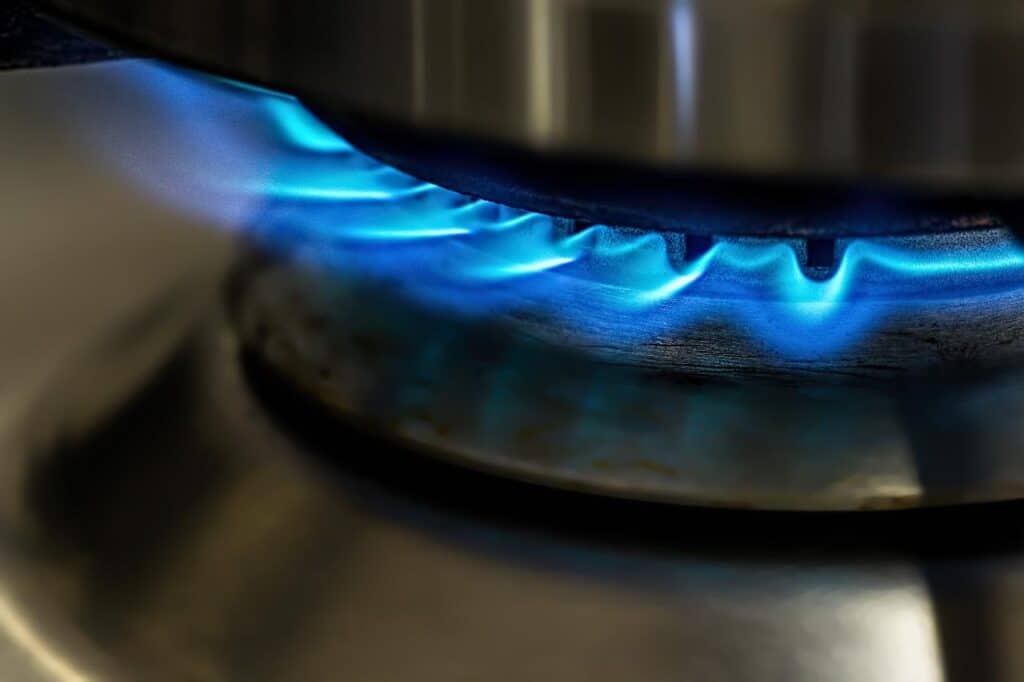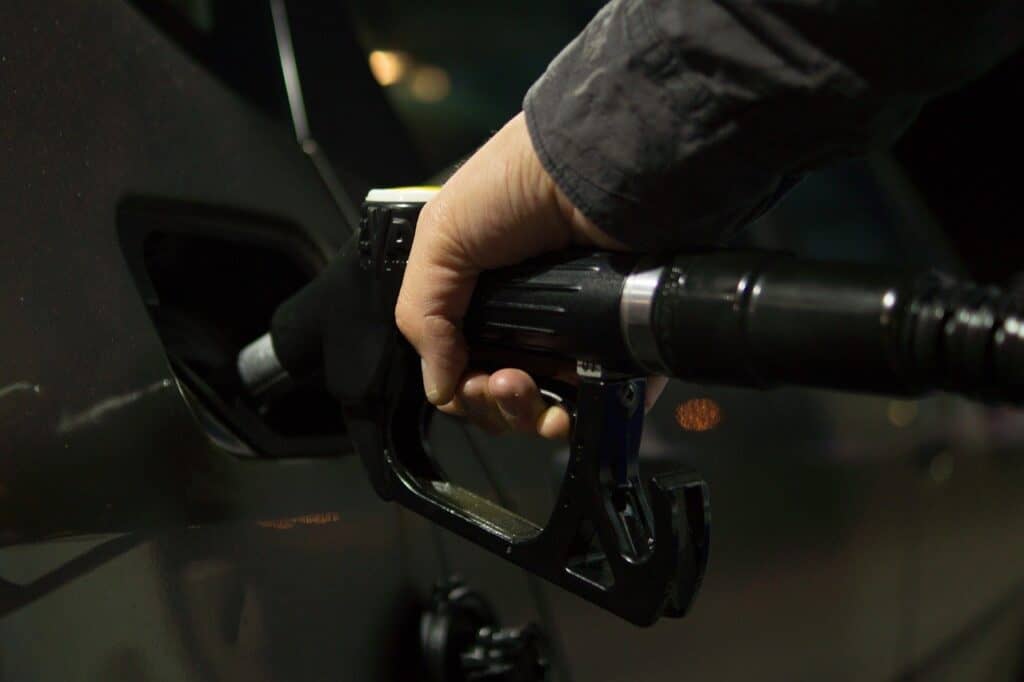Most of us first come across methane in a school chemistry lesson and later we learn that it’s part of a bodily reaction, flatus. Exposure to methane in this way will lead many of us to conclude that it might be a fire hazard. But is that true? And if so, what precautions should we be taking around methane that can help keep us safe?
Methane is both flammable and potentially explosive. It burns very easily in oxygen and can ignite below room temperatures. The flashpoint is -211 degrees Fahrenheit (-135 Celcius) and the auto-ignition temperature is 1103 degrees Fahrenheit (595 Celsius).
That means we need to ensure that methane is stored and used in a safe manner and certainly, never exposed to a naked flame. This is what you need to know about methane and its use.
Your # 1 priority is keeping your family safe. As a firefighter, I recommend everyone has updated smoke detectors that don’t require battery changes, like these ones from Kidde, a fire extinguisher, like this one from Amerex, and a fire escape ladder if you have bedrooms above the first floor, I recommend this one from Hausse.
Also read: What Makes Something Flammable?
What Is Methane?

Methane is a gas at room temperature and one of the “alkanes” (that is a compound containing hydrogen and carbon and only single bonds between the elements).
It’s the simplest of the alkanes and has the chemical formula CH4.
It burns easily and relatively cleanly with the byproducts of water and carbon dioxide and it is found in abundance in natural gas deposits around the world, making it low cost and thus, very attractive as a commercial fuel substance.
That doesn’t mean that methane extraction is always easy and there are some fairly serious hurdles that need to be overcome to extract gas and store it when under standard pressure and temperature.
Methane also leaks out of the seabed naturally and in the last 300 years or so, the amount of methane in the atmosphere has more than doubled.
This is a problem because methane is a greenhouse gas and it’s about 25 times more effective than carbon dioxide when it comes to trapping heat in the Earth’s atmosphere.
Methane is also common elsewhere in the solar system and can be found in places as diverse as the planet Mars and the moon of Triton.
Also read: Are Farts Flammable? Can They Explode?
What Is It Used For?
We’ve already noted that methane is a popular choice of fuel and it’s commonly used in laboratories, homes, heating, even automobiles, etc. as a fuel choice.
It’s also the main ingredient in many forms of rocket fuel where it will be burned in conjunction with liquid oxygen to provide maximum thrust.
Its other major use is as a chemical “feedstock” and methane can be burned in the presence of a catalyst to generate carbon monoxide and pure hydrogen gas rather than water and carbon dioxide.
Thus, nearly all the world’s hydrogen is produced in bulk from burning methane.
It is also used as a precursor for chloromethane products.
Also read: Can You Use A Propane Heater Indoors? Is It Safe?
Is Methane Flammable?
As you might expect from a fuel, methane is a highly flammable substance and can be ignited with just a spark (if you have a gas range then you already know this – the “gas” is, in fact, methane and you ignite it with an electric starter that produces a spark).
It is also flammable at relatively low concentrations in the air (as little as 5%) and thus, requires storage in pressurized canisters in a well-ventilated area away from sparks and naked flames.
Also read: Is Natural Gas Flammable? You May Be Suprised…
Is Methane Explosive?
Methane is both flammable AND explosive. As with most flammable gasses, methane will mix with the air, and thus, when a spark or naked flame is introduced it will burn throughout the mixture and this can be described as explosive.
Methane cylinders may also explode if heated enough as the methane will expand and shatter the cylinder, if this happens – the methane inside is also likely to explode as it mixes with the air.
Also read: Is Butane Flammable?
How Does It Explode In Coal Mines?
Coal gas is also methane gas, and a ton of coal contains up to 600 cubic feet of methane.
This is bad news for coal miners as when the air contains methane, it becomes a potential explosion risk.
The most dangerous concentration (e.g. when methane most readily explodes) is 9.5% methane to air and it requires very little heat or energy to start the reaction.
Should the methane catch fire, it immediately raises the temperature of the air in a mine, when the air gets hotter, the volume of the air increases.
Down in a mine, there’s nowhere for that extra volume to go, so pressure starts to rise in the air and if it goes high enough, it will compress the air outside of the combustion zone and then cause a shock wave (explosion).
To avoid this, most coal mines have ventilation systems in place to try and draw methane from the mine but they are not always successful and it’s still possible for methane to build up.
And there’s another explosion hazard down in the mines – coal dust. And a methane fire or explosion can then cause a secondary explosion by igniting the dust.
And these explosions can be deadly, since 1839 more than 500 fires have occurred in coal mines in the United States, alone, that have claimed 5 or more lives.
Methane in mines is no joke.
Can You Smell Methane?
No, despite methane’s association with flatus, what you can smell when you fart is not methane but other chemicals and gasses.
Methane is completely colorless and odorless and this means in industrial use, methane detectors need to be deployed to ensure that any leakage is immediately noticed.
Is Methane Toxic?
No. One of the things that makes methane such an attractive choice of fuel is that under most circumstances, it’s not toxic.
How Much Can Kill You?
Unfortunately, a substance does not need to be toxic to kill you.
Methane can cause asphyxiation when it forces out oxygen from the space you are in, if the oxygen level drops below 16%, breathing becomes difficult and below 10% can knock you out immediately and death will quickly follow.
Is Methane In Farts Flammable?
We knew you were going to ask this and the answer is, yes. Farts can be flammable.
You can, indeed, light a fart on fire, but we really wouldn’t recommend that you do, you might burn yourself in a very uncomfortable spot.

